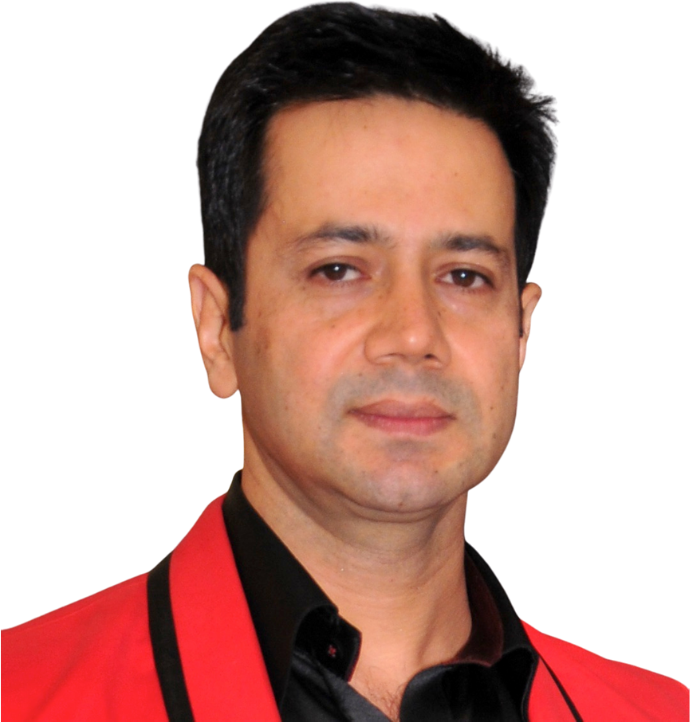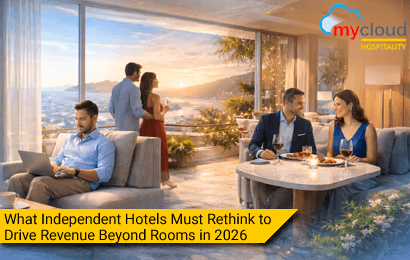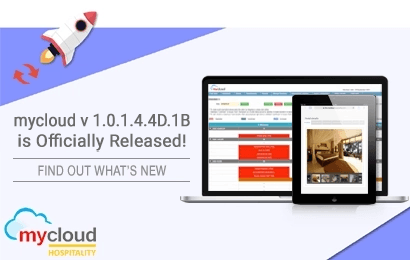Every day, thousands of hotels lose money — not because of bad service or low occupancy, but because of poor financial workflows. Manual reconciliation, the tedious process of matching transactions between PMS, POS, OTAs, and banks, quietly eats away at both time and accuracy.
A recent Hospitality Tech India 2024 report revealed that Indian hotels lose up to 20% of their finance team’s productive hours each week due to manual reconciliation errors and rework. That’s almost one full working day wasted chasing data mismatches instead of analyzing profitability.
For an industry where margins can swing on a few percentage points, this inefficiency is a silent killer of growth. Guests see spotless lobbies and smiling staff — but behind the scenes, finance teams are drowning in spreadsheets.
Let’s explore why this “invisible bottleneck” is slowing your hotel’s growth — and how technology can fix it.
What Is Manual Hotel Reconciliation (And Why You Need to Automate It Now)
In simple terms, reconciliation means ensuring that your recorded revenue matches your actual receipts across all sources. In hotels, this involves matching PMS data (rooms), POS data (restaurants, bars, banquets), OTA commissions, and payment gateway transactions with bank deposits and invoices.
For example, your PMS might record ₹2,50,000 in daily room revenue, while your OTA sends ₹2,45,000 after deducting commission. Without automation, finance teams must manually check why ₹5,000 is missing — often spending hours tracing transactions across Excel sheets.
These discrepancies compound when a hotel deals with dozens of OTAs, event bookings, and multiple payment modes. Small errors add up — leading to underreported income or overstated liabilities.
As booking channels multiply post-pandemic, manual reconciliation is no longer feasible — it’s a financial risk that grows with every extra booking source.
Let’s explore the hidden costs that come with staying manual.
The Hidden Costs & Daily Pain Points of Manual Reconciliation in Hotels
Manual reconciliation feels simple on paper — but in reality, it’s one of the most painful daily routines for hotel finance teams. Behind every “balanced” report are hours of invisible work, frustration, and missed opportunities.
Here’s what it really costs your hotel:
- Staff burnout: Finance teams spend 4–6 hours daily on spreadsheet matching, causing fatigue and lowered productivity.
- Revenue leakage: A 2024 PwC Hospitality Audit found that hotels lose 1–2% of revenue annually due to reconciliation errors.
- Vendor delays: Missed or duplicate payments can strain relationships with suppliers and partners.
- Fraud exposure: Manual entries leave room for manipulation and misreporting.
- Compliance headaches: GST reconciliation becomes a nightmare when financial data isn’t synced in real time.
Consider this: a mid-size property processing 500 transactions a day could be handling over 15,000 line items monthly — all manually if there’s no automation. Reconciling Back Office entries with actual bank deposits is the most complex part. With income from OTAs, walk-ins, corporate accounts, and online payments, it’s easy for one missing transaction to snowball into hours of detective work.
Every hour spent reconciling could instead go toward strategic decisions like rate optimization, vendor negotiations, or guest experience enhancement.
Head-to-Head Comparison: Manual vs Automated Hotel Reconciliation
Think of manual reconciliation as running a marathon in flip-flops, while automation gives you a high-performance engine. Here’s how both approaches compare across every key factor:
1. Time Consumption
- Manual: Requires 4–6 hours every day to cross-verify data between PMS, POS, OTAs, payment gateways, and banks. Staff must manually locate mismatches, update entries, and validate totals — a draining process that delays financial reporting.
- Automated: Completes reconciliation in minutes. The system automatically pulls data from connected sources, matches records, and highlights discrepancies instantly — no more after-hours number crunching.
2. Error Rate
- Manual: Prone to human errors like missed invoices, incorrect commission calculations, and duplicate entries. Even a single incorrect cell can distort the entire P&L.
- Automated: Uses data logic to ensure accurate matching across every source, resulting in near-zero errors and full data consistency throughout PMS, POS, and accounting.
3. Scalability
- Manual: Becomes unmanageable as distribution channels grow. Each new OTA or payment partner adds more reports to reconcile, forcing hotels to hire
additional staff just to keep up. - Automated: Handles expanding transaction volumes seamlessly. Whether your hotel adds five new OTAs or ten corporate accounts, automation scales effortlessly without increasing manpower.
4. Cost Impact
- Manual: Hidden costs come in the form of wasted labor, late fee penalties, revenue leakage, and poor visibility into true profitability. Over time, these costs silently erode margins.
- Automated: Delivers measurable ROI by reducing manual work, improving payment accuracy, and ensuring faster closings. Hotels using mycloud PMS report saving up to 80% in financial admin time.
5. Data Visibility
- Manual: Information is scattered across spreadsheets, emails, and multiple systems. Teams waste hours just collecting data before analysis can even begin.
- Automated: Consolidates all financial information into a single dashboard, offering real-time insights into revenue, expenses, and receivables — empowering faster, data-backed decision-making.
6. Decision-Making Speed
- Manual: Reactive at best — discrepancies are discovered after reports are generated, delaying corrective actions.
- Automated: Proactive by design — instant alerts on mismatches enable immediate action before reports close, giving management control in real time.
The difference is clear: automation turns reconciliation from a back-office chore into a real-time decision engine.
The Business Benefits of Automating Hotel Reconciliation
When reconciliation becomes automated, finance moves from reactive firefighting to proactive financial strategy.
Here’s how hotels benefit:
1. Real-Time Financial Accuracy: Every transaction syncs instantly, ensuring reports reflect real-time figures across all systems.
2. Better OTA Commission Control: Automated tools detect mismatched payouts or hidden commissions, recovering lost revenue. (Skift Research, 2024 found that hotels reclaim up to 3% of OTA commissions after automation.)
3. Improved Vendor Relations: Automated PO–GRN–AP cycles ensure suppliers are paid accurately and on time, avoiding disputes.
4. Faster Month-End Closing: Hotels report up to 30% faster closings after adopting reconciliation automation (Source: Statista Hospitality Insights, 2024).
5. Lower Operational Overheads: By eliminating manual tasks, hotels can redirect finance staff toward forecasting, analysis, and budgeting.
For instance, Hablis Hotel Chennai, a mycloud client, reduced month-end closing time from 10 days to just 4 days after implementing automated reconciliation workflows — freeing staff to focus on analytics and vendor negotiations instead.
How Mycloud Hospitality Solves the Reconciliation Puzzle
Mycloud Hospitality brings everything — PMS, POS, and accounting — under one unified cloud platform, ensuring every rupee is tracked from booking to bank.
Centralized Dashboard
Access a single financial snapshot across all booking channels, payments, and commissions. One login gives you complete revenue visibility.
Automated Reconciliation Engine
Mycloud auto-matches data between PMS, POS, payment gateways, and OTAs. Discrepancies are highlighted instantly, saving hours of manual checks.
Alerts & Notifications
Get instant alerts for overcharges, missing invoices, or commission mismatches — empowering proactive resolution before audits.
Integration Excellence
With 200+ ready integrations, including OTAs, banks, and payment providers, Mycloud ensures seamless connectivity across all platforms.
Procurement Reconciliation Workflow
From Purchase Order (PO) to Goods Received Note (GRN) to Accounts Payable (AP), mycloud automates vendor reconciliation, preventing duplicate postings and payment delays.
Open API Ecosystem
Integrate easily with your existing hotel accounting software, ensuring flexibility for complex financial structures or group-level accounting.
With Mycloud PMS, you get more than automation — you get financial clarity, operational confidence, and time to focus on guests.
Why Indian Hoteliers Are Switching to Mycloud for Reconciliation Automation
Indian hotels are embracing automation not as a luxury, but as a necessity. Mycloud’s reconciliation module is built for the unique financial challenges of Indian hospitality — from multi-GST compliance to multi-property management.
- Localized for India: Built to handle GST reports, Indian bank formats, and multi-currency support.
- Affordable for Every Segment: From boutique hotels to regional chains, mycloud offers flexible pricing that fits your budget.
- Hands-On Support: Indian-based onboarding and training ensure every user is confident from day one.
- Trusted by Leading Brands: Groups like BluSalz Hotels & Resorts and Hablis Chennai rely on mycloud to automate financial workflows across properties — with measurable gains in accuracy and speed.
Conclusion: Automate, Simplify, Grow — Future-Proof Your Hotel Finances
Manual reconciliation doesn’t just slow down your books — it slows down your business. It’s a hidden tax on time, morale, and growth.
Automation through an integrated Hotel management system isn’t just convenient — it’s transformative. With Mycloud Hospitality’s 200+ integrations, open API, and automated reconciliation engine, hotels can finally eliminate repetitive financial chaos and focus on revenue growth.










